 It is no secret that sleep disturbances affect all of us at some point in our lives. Right now, 1 in 10 adults suffers from intermittent or chronic insomnia. There are 30 million Americans alone who report struggling with chronic insomnia annually, and our problems are just getting worse.
It is no secret that sleep disturbances affect all of us at some point in our lives. Right now, 1 in 10 adults suffers from intermittent or chronic insomnia. There are 30 million Americans alone who report struggling with chronic insomnia annually, and our problems are just getting worse.
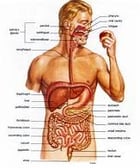 The Digestive System
The Digestive System
Your digestion is a complex system of organs and glands designed to extract nutrients and energy from food. But, if you were to imagine the entire gastrointestinal tract from your mouth to your anus as being like the hole in a doughnut, you have to understand that just because you put something in the hole, doesn’t mean it becomes part of the doughnut. Your digestive system is designed to absorb the good and keep the bad out. However, because of a variety of influences, this doesn’t always happen.
Before we get into that, let’s briefly discuss the anatomy and physiology of your gastrointestinal system to get a better idea of how it works, how each part of the system can affect your sleep and why.
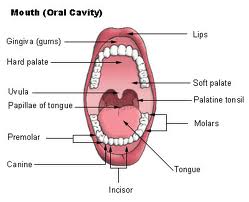 The Mouth
The Mouth
You wouldn’t think that your mouth had anything to do with sleeping outside of the fact that you may have the occasional bout of morning breath; however, the state of this first part of your digestive system can have a lot to do with how well you sleep.
Thinking you’re too tired to brush and especially floss your teeth before bed? Think again. The bacteria in your mouth from undigested particles of food proliferate while you sleep, which is actually one of the main reasons you get bad morning breath. On a deeper level, this growth of pathogenic bacteria can create the first seat of inflammation in your GI tract – commonly known as gingivitis. As the initial stage of periodontal disease, gingivitis causes a host of inflammatory chemicals to be unregulated which, as we will see, directly affects your brain chemistry, the induction of sleep and how deeply you sleep.
As well, the health of our teeth and gums can actually tell us a lot about how we are sleeping and the health of the rest of your GI Tract. How is this possible? Pay attention to whether or not your grind or clench your teeth, or if you awaken with tension headaches after a night of fitful sleep. Grinding your teeth (or bruxism as it is known) is NOT a disease. Getting a splint does not stop you from grinding your teeth; it only stops you from destroying them. Teeth grinding is a signal from our bodies that something is causing inflammation in our digestive system, whether that be parasites (most common), candida, food allergies, or leaky gut syndrome.
The Esophagus and Stomach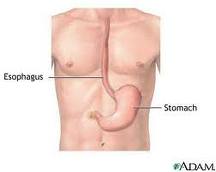
The upper GI tract can also provide a host of signals that your digestion may be interfering with your sleep. Many people suffer with GERD (Gastroesophageal Reflux Disease), also known as heartburn, and just as many people find it can keep them up to all hours of the night with an inescapable fire in their chest. An important 2010 study called “Gastroesophageal reflux disease and sleep disorders: evidence for a causal link and therapeutic implications” from the School of Medicine at Ewha Women’s University in Korea, determined the following:
- There is a significant association between disturbed sleep and GERD, and this may be bidirectional.
- Sleep disorders may induce gastrointestinal (GI) disturbances, while GI symptoms also may provoke or worsen sleep derangements.
- Reflux of gastric acid is a less frequent event during sleep, however, acid clearance mechanisms (including swallowing, salivation and primary esophageal motility) are impaired during sleep resulting in prolongation of acid contact time.
There are multiple causes of GERD that include the following contributing factors: function of the lower esophageal sphincter (LES), emptying of the stomach and esophageal contractions.
 The LES is a specialized ring of muscle that surrounds the lower-most end of the esophagus where it joins the stomach. The muscle that makes up the LES is active most of the time. This means that it is contracting and closing off the passage from the esophagus into the stomach. This closing of the passage prevents reflux. Patients with GERD have been noted to have abnormally weak muscle contractions or “transient LES relaxations”, which occur sporadically and don’t coincide with swallowing. When both of these problems are the issue, patients usually noted that the reflux got worse when they were lying down in bed. Part of the reason this sphincter does not work properly is due to lack of minerals, especially calcium and magnesium in balanced ratios, as well as stress and a lack of hydrochloric acid production.
The LES is a specialized ring of muscle that surrounds the lower-most end of the esophagus where it joins the stomach. The muscle that makes up the LES is active most of the time. This means that it is contracting and closing off the passage from the esophagus into the stomach. This closing of the passage prevents reflux. Patients with GERD have been noted to have abnormally weak muscle contractions or “transient LES relaxations”, which occur sporadically and don’t coincide with swallowing. When both of these problems are the issue, patients usually noted that the reflux got worse when they were lying down in bed. Part of the reason this sphincter does not work properly is due to lack of minerals, especially calcium and magnesium in balanced ratios, as well as stress and a lack of hydrochloric acid production.
 If you go to bed with a full stomach and you’re brain is going non-stop with worry, the combination of contractions from stomach emptying and being in a parasympathetic state will compound to cause reflux, and impair both digestion and sleep. Two things: don’t eat late, and chill out.
If you go to bed with a full stomach and you’re brain is going non-stop with worry, the combination of contractions from stomach emptying and being in a parasympathetic state will compound to cause reflux, and impair both digestion and sleep. Two things: don’t eat late, and chill out.
Esophageal contractions are also a common cause of GERD, but also may be related to over-production of mucus, regardless of whether heartburn is a factor. Swallowing causes a ring-like wave of contraction of the esophageal muscles, which narrows the lumen (inner cavity) of the esophagus. The contraction, referred to as peristalsis, begins in the upper esophagus and travels to the lower esophagus. It pushes food, saliva, and whatever else is in the esophagus into the stomach.
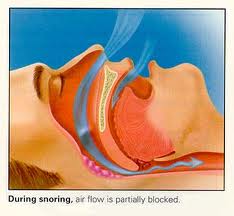 When this action is impaired, neither acid, nor excess mucus can be cleared. Mucus especially can be problematic as anyone who has had bronchitis can testify. Just as acid clearance is aided by gravity, so too is that of mucus build-up. When you’re lying down this gets worse and can block airways, resulting in coughing or in severe cases, can contribute to sleep apnea (a sleep disorder characterized by abnormal pauses in breathing or instances of abnormally low breathing, during sleep).
When this action is impaired, neither acid, nor excess mucus can be cleared. Mucus especially can be problematic as anyone who has had bronchitis can testify. Just as acid clearance is aided by gravity, so too is that of mucus build-up. When you’re lying down this gets worse and can block airways, resulting in coughing or in severe cases, can contribute to sleep apnea (a sleep disorder characterized by abnormal pauses in breathing or instances of abnormally low breathing, during sleep).
Mucus is a natural immune, inflammatory response to pathogens. Your body creates mucus to trap toxins, viruses and bacteria in order to isolate and dispose of them efficiently. What can cause esophageal mucus buildup?
- Smoking
- Food Allergies
- Environmental Allergies
- Viral or Bacterial Infections
Once again, GERD and mucus buildup are signals from our bodies that something is not right in our digestive system and that there is inflammation!
The Small Intestine and The Colon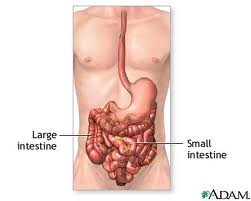
The role of your intestines in governing inflammation and sleep, whether it is your small or large intestines, cannot be overstated. Some estimates cite the gut as being responsible for over 80% of your immune function. A lot of this has to do with something called your innate immune system. This is essentially the cells and mechanisms by which your body defends itself. The manner in which it does this is non-specific and differs from your adaptive immune system which is highly specialized to seek and kill pathogens. And this makes perfect sense from a design stand-point. If you are putting things into your GI tract, naturally you need a mechanism by which you protect yourself from invaders. And since most things we put in our bodies go through the digestive system, the prevalence of immune cells in that system is imperative.
However, when pathogens to which specific immune responses have developed are introduced again and again over a long period of time (in the case of allergens or chemical irritants found in food or water), the continual upregulated activity of our immune system leads to large amounts of inflammation, burning like a smoldering fire, choking out normal cellular function and leading to a host of chemical imbalances that affects everything from our mood to our sleep.
Do you feel like you’re allergic to everything?
For many people, it can seem like no matter what they eat, they are always reacting. This is a classic sign of leaky gut syndrome. This syndrome silently affects millions of people across the world and has even been cited as one of the predominant contributors to chronic inflammatory diseases.
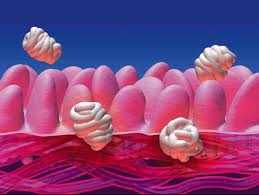 What is Leaky Gut Syndrome?
What is Leaky Gut Syndrome?
Leaky Gut Syndrome is when large quantities of undigested or partially digested food particles, as well as fragmental microorganisms, pollute the circulatory and lymphatic systems around the GI tract. This is due to small tears or an increase in the permeability of the intestinal wall. Normally, the lining of the small intestine is selectively penetrable, and only digested food particles pass through it to be utilized in the blood stream and lymph cells. Leaky Gut Syndrome occurs commonly because the wall of our intestines is only one cell layer thick. These cells are renewed every three days and if your cellular turnover and gut integrity is not up to par, this can spell disaster, leading to gaps in the barriers. This compromises the ability of your body to keep bad things out and good things in.
What causes it?
- Nutritional Deficiencies
- Stress or Trauma
- Drug Use (especially antibiotics, NSAIDs and alcohol)
- Parasites and Candida
- Food Allergies
It is important to note the “feed forward” nature of these factors. They all contribute to intestinal permeability, which can lead to further sensitivities, immune responses and upregulation of inflammation, which leads to further permeability. And so on and so forth. Hence, gut health is of ultimate importance.
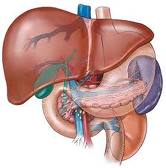 What effect does this have on the liver?
What effect does this have on the liver?
Because the excess debris that comes from your “leaky gut” is dumped into your detoxification system, your liver is naturally overtaxed by the extra burden. The truth is that most of us do more to challenge our liver these days than we do to support it. If you think about it, our liver as an organ has not evolved in the thousands of years that we’ve been on earth. In fact, we share this organ with the whole mammalian kingdom. What has dramatically changed at this point in history is the sheer amount of environmental and food toxins that surround us daily. In short, our liver has a lot more junk to deal with than it ever has had before: carcinogenic substances, pesticides, herbicides, environmental hormones, heavy metals, and of course, the ever-present stress.
When we add undigested food particles to this mixture, it becomes apparent that what our liver has to deal with is often more than it can handle, leading to further spillage of toxins into the bloodstream which causes a perpetual mobilization of the immune system. In other words, INFLAMMATION CENTRAL!
If your problem is staying asleep, liver troubles may be your issue. In Traditional Chinese Medicine, it is believed that there are twelve energy pathways, or meridians, in the human body that connect to specific organs. Chinese medicine believes that each organ has a two hour time period when the Qi is at its peak in that meridian. The Qi flows cyclically in a clockwise rotation like a wave through the meridians. Give or take a couple hours due to Daylight Savings Time, and you can safely say that the Liver detoxifies roughly between 1am and 3am. Sound familiar? If you wake consistently during these times, it is a good indication that your liver is “huffin’ and puffin’,” trying to keep up.
To add insult to injury, the liver is traditionally a thermogenic organ. This means heat-producing, so if you’re suffering from hot flashes or night sweats, liver is likely your issue. But even if those aren’t symptoms you suffer from, an aggravated liver that can’t detoxify properly at its normal meridian time can cause so much inflammation that it affects your brain chemistry.
Related article: How Liver Support Supplements Help Detox The Body.
The Role of Inflammation

So far, we have painted a pretty grim picture of our digestive systems – from swollen gums to acid-filled throats, from leaking guts to angry livers. It’s no wonder we can’t get a decent night’s sleep! But why, exactly, is this the case?
There are a number of hypotheses as to how inflammation affects sleep induction. Below the explanation that I would accept as having the greatest effect:
Inflammation is a form of physical stress in the body that directly upregulates levels of stress hormones, including cortisol, epinephrine, and norepinephrine. Under chronic conditions of inflammation – as we see when one suffers from digestive problems – our bodies go into “fight or flight” mode, an activated sympathetic state, in which our adrenal glands secrete excessive levels of the hormone cortisol. In the short-term, this exercises a beneficial effect, especially through the immediate mobilization of energy reserves. However, the long-term effects of elevated cortisol can cause serious detriment. It is often stated that the principle seat of inflammation in the body is the intestinal tract, and as such, if we do not have it functioning in harmony, all other sleep-related functions in the body are hampered. Nearly every chemical that controls the brain is also located in the gastrointestinal tract. The gut actually contains 100 million neurons – more than the spinal cord. But there are also two-dozen small brain proteins; major cells of the immune system; one class of the body’s natural opiates; and native benzodiazepines. The gut has also been proven to have its own nervous system, known as the enteric nervous system. It is located in sheaths of tissue lining the esophagus, stomach, small intestine and colon, and plays a key role in human emotions and brain health. But few know the enteric nervous system exists, and therefore gut health is often overlooked when determining psychological factors or insomnia issues. Symptoms from the two brains can get confused, and just as the brain can upset the gut, the gut can also upset the brain.
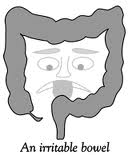 In a study from the Royal College of Psychiatrists, it was determined that elevated cortisol secretion was so clearly correlated to decreased levels of serotonin as to be called a ‘textbook truism’.
In a study from the Royal College of Psychiatrists, it was determined that elevated cortisol secretion was so clearly correlated to decreased levels of serotonin as to be called a ‘textbook truism’.
It’s not only stress that causes excess cortisol, but low stomach acid has also been implicated in raising these levels. And when raised cortisol inhibits the production of serotonin essential for sleep induction, our sleep is disrupted. This is from two perspectives. Firstly, the above outlined parasympathetic state, but also by malnourishment resulting from poor digestion. That is to say, when we have a leaky gut, or our digestion is comprised by food allergies, parasites or candida, our absorption of nutrients is directly affected. When our body cannot get the nourishment it requires, it sends us into stress mode as well.
This is also a cyclical process due to serotonin’s signaling effect at the level of the intestine. In a study entitled “Alterations in Intestinal Serotonin in IBS and Dyspepsia” out of the Mayo Clinic, it was determined that in patients with dyspepsia (indigestion), serotonin reuptake in the stomach and in the small intestine was severely compromised. Essentially, “the results support the concept that functional disorders may be associated with altered serotonin signaling.” This is predominantly dependent on the ability of enterochromaffin cells to operate. These cells are found throughout the digestive system and release serotonin to regulate gut motility.
 Stress hormones also tend to decrease DHEA and Human Growth Hormone, which also directly affects sleep induction, quality and duration. In a study out of the American Journal of Physiology and Endocrine Metabolism from 1995, it was determined that elevated levels of DHEA had a direct effect on increasing Rapid Eye Movement and in the regulation of the brain’s spontaneous electrical activity. Electroencephalography (EEG) measures the summation of the simultaneous activity of millions of neurons that share a similar spatial orientation. These neurons control any number of chemical reactions that relate directly to sleep-wakefulness, among the infinite functions our nervous system facilitates. This is an activity that is dependent on adequate levels of DHEA. In a sympathetic state, the production of DHEA (the “rebuilding” and “youthful” hormone) gets little to no priority in the body and production all but stops.
Stress hormones also tend to decrease DHEA and Human Growth Hormone, which also directly affects sleep induction, quality and duration. In a study out of the American Journal of Physiology and Endocrine Metabolism from 1995, it was determined that elevated levels of DHEA had a direct effect on increasing Rapid Eye Movement and in the regulation of the brain’s spontaneous electrical activity. Electroencephalography (EEG) measures the summation of the simultaneous activity of millions of neurons that share a similar spatial orientation. These neurons control any number of chemical reactions that relate directly to sleep-wakefulness, among the infinite functions our nervous system facilitates. This is an activity that is dependent on adequate levels of DHEA. In a sympathetic state, the production of DHEA (the “rebuilding” and “youthful” hormone) gets little to no priority in the body and production all but stops.
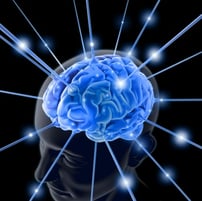 Human Growth Hormone is also directly downregulated by the presence of excess stress hormones. It is estimated that nearly 50% of HGH secretion occurs during later stages of REM sleep. Research published in the Journal of American Medicine in August 2000 directly linked sleep disorders to a lack of HGH. The research, as it was undertaken at the University of Chicago, theorized that since HGH is produced naturally during sleep (particularly slow wave sleep), reduced levels can affect the deepness of sleep or induction altogether.
Human Growth Hormone is also directly downregulated by the presence of excess stress hormones. It is estimated that nearly 50% of HGH secretion occurs during later stages of REM sleep. Research published in the Journal of American Medicine in August 2000 directly linked sleep disorders to a lack of HGH. The research, as it was undertaken at the University of Chicago, theorized that since HGH is produced naturally during sleep (particularly slow wave sleep), reduced levels can affect the deepness of sleep or induction altogether.
Sleep induction is dependent on an active inhibitory process involving GABA. GABA is a neurotransmitter synthesized in the brain in at least 2 compartments, commonly called the transmitter and metabolic compartments. The main enzyme required for the synthesis of GABA is glutamate decarboxylase. Two forms of this enzyme exist and differ in both molecular weight and how they interact with cofactor P-5-P (i.e. activated Vitamin B6). GABA’s dependency on the amino acid and neurotransmitter glutamate is well established and, in numerous studies its conversion to GABA has been shown to be adversely affected by higher levels of inflammatory chemicals in the brain. In fact, it is also well-established that GABA may exert a positive effect in modulating inflammation in auto-immune disorders, so it makes sense that the relationship would be reciprocal. The more inflammatory chemicals you have, the less GABA you produce and vice versa. This is not even to mention that fact that lack of GABA is also related to decreased serotonin levels as well! What this spells for sleep is that a lack of GABA to initiate the active inhibitory process will affect the entire manner by which we lose consciousness.
In summation, chronic inflammation, stemming directly from digestive problems, upregulates stress hormones (even if we don’t feel stressed!) which suppresses the production and function of necessary sleep chemicals – serotonin, DHEA, HGH and GABA.
Complete the following questionnaire to determine if your digestion or the state of your GI tract is affecting your sleep:
- Do you grind or clench your teeth?
- Do you crave sugar and carbohydrates?
- Do your ears, feet or anus itch?
- Are you prone to reactive behavior?
- Do you get angry at the slightest provocation?
- Are you unable to let go of things?
- Do you have trouble staying asleep?
- Do you wake between midnight at 3am?
- Do you wake with headaches? Or suffer headaches/migraines regularly?
- Do you wake with terrible morning breath?
- Do you have a hard time getting out of bed?
- Do you cough when you lay down to sleep?
- Do you have breakouts?
- Acne?
- Are your eyes puffy?
- Do they have dark circles under them?
- Do you snore?
- Do you suffer from hot flashes (during the day) and/or night sweats?
- Do you sleep walk/talk?
- Do you often have frightening vivid dreams?
- Do you wake from sleep with muscle tightness or pressure in your chest?
- Do you find teeth marks in your tongue upon waking?
- Do you suffer from sleep apnea?
If you said yes to 3 or more of these questions, digestion and/or gastrointestinal and liver issues are likely affecting your sleep negatively. Read on to find out what you can do to minimize these problems and dream sweet dreams all the nights of your life.
Elimination Diet
 There are 2 phases to decreasing inflammation in the body. Arguably, the most important phase is to isolate, recognize and decrease the substances or behaviours which are causing the rise in inflammation in the first place. I recommend doing an elimination diet, which entails removing common allergens from the diet for an extended period of time. After the allergens have been removed for 4-6 weeks, you can reintroduce them one by one, being careful to document your reactions to them in a food journal. After such a long hiatus without possible allergens, the body’s response to a food’s reintroduction will be very visible and pronounced usually, giving you an indication of which foods to avoid in the future, which to eat sparingly, and which to avoid altogether. The top allergens are wheat, dairy, soy, corn, nightshade vegetables, eggs and nuts. Generally speaking, the more you crave something, the more likely you are to be allergic to it.
There are 2 phases to decreasing inflammation in the body. Arguably, the most important phase is to isolate, recognize and decrease the substances or behaviours which are causing the rise in inflammation in the first place. I recommend doing an elimination diet, which entails removing common allergens from the diet for an extended period of time. After the allergens have been removed for 4-6 weeks, you can reintroduce them one by one, being careful to document your reactions to them in a food journal. After such a long hiatus without possible allergens, the body’s response to a food’s reintroduction will be very visible and pronounced usually, giving you an indication of which foods to avoid in the future, which to eat sparingly, and which to avoid altogether. The top allergens are wheat, dairy, soy, corn, nightshade vegetables, eggs and nuts. Generally speaking, the more you crave something, the more likely you are to be allergic to it.
Kicking Your Addiction To The Gateway Drug The most common “allergen” associated with upregulated inflammation and an overgrowth of parasites or candida is processed SUGAR. The word allergen is in quotations because sugar is not a true allergen. In fact, there is strong evidence that sugar has a negative effect on the immune system, regardless of personal tolerance. When white blood cells are exposed to high levels of sugar in the bloodstream, they have a decreased ability to engulf bacteria and have weakened systemic resistance to all infections. And when you have candida or parasites, what do you crave? Sugar!
The most common “allergen” associated with upregulated inflammation and an overgrowth of parasites or candida is processed SUGAR. The word allergen is in quotations because sugar is not a true allergen. In fact, there is strong evidence that sugar has a negative effect on the immune system, regardless of personal tolerance. When white blood cells are exposed to high levels of sugar in the bloodstream, they have a decreased ability to engulf bacteria and have weakened systemic resistance to all infections. And when you have candida or parasites, what do you crave? Sugar!
Candida and Parasite Cleansing
There are many symptom lists that you can consult to assess whether or not your issue with digestion is connected to candida or parasite infestations. Both of these conditions are major
contributors to leaky guy syndrome and also directly upregulate inflammation. Without getting 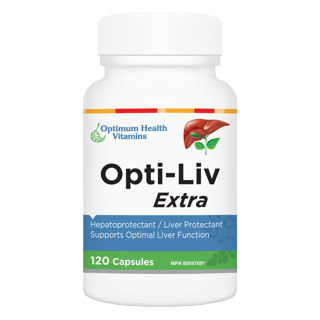 these pathogens under control, your chance of repairing your gut is very limited, as is modulating inflammation. Look into cleansing programs and find one that is right for you.
these pathogens under control, your chance of repairing your gut is very limited, as is modulating inflammation. Look into cleansing programs and find one that is right for you.
Liver Support – Opti Liv Extra is our top product for aiding the natural detoxification processes.
Probiotics – Since we know that our intestinal wall renews itself every three days, it’s important to take supplements that optimize that renewal. Probiotics have been clinically shown to rejuvenate the cell wall in addition to increasing the length, strength and integrity of our intestinal villi; thus, making probiotics an essential component of any reparative “leaky gut” protocol. As well, the anti-inflammatory effects of probiotics have also been well-documented.
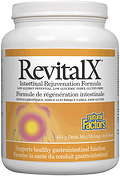 RevitalX – The second phase of decreasing inflammation in the body, after eliminating aggravants, is to modulate the immune system and control inflammatory chemicals in the body. RevitalX is a hypoallergenic meal replacement powder that is meant to control inflammation at the level of the gut, decrease allergic reactions and help rebuild the intestinal wall to reverse leaky gut syndrome. It contains a highly digestible, low allergy protein called GoldPeptides (non-GMO golden pea protein), glutamine, n-acetyl-glucosamine, pantothenic acid, zinc, a spectrum of anti-oxidants, quercetin, water-soluble fibre, lecithin and patented probiotic strain B5A.
RevitalX – The second phase of decreasing inflammation in the body, after eliminating aggravants, is to modulate the immune system and control inflammatory chemicals in the body. RevitalX is a hypoallergenic meal replacement powder that is meant to control inflammation at the level of the gut, decrease allergic reactions and help rebuild the intestinal wall to reverse leaky gut syndrome. It contains a highly digestible, low allergy protein called GoldPeptides (non-GMO golden pea protein), glutamine, n-acetyl-glucosamine, pantothenic acid, zinc, a spectrum of anti-oxidants, quercetin, water-soluble fibre, lecithin and patented probiotic strain B5A.
Calcium- Magnesium – The effects of these minerals are more far-reaching than just maintaining bone mass. They include regulating muscle relaxation and contraction, and activating the sympathetic nervous system for relaxation. In fact, the alkalizing effects of these citrate minerals go a long way to buffering excess acidity in the kidneys. This will indirectly decrease your tendency for inflammation, not even to mention the prophylactic effects for people suffering from GERD.
In health,
Nakita



